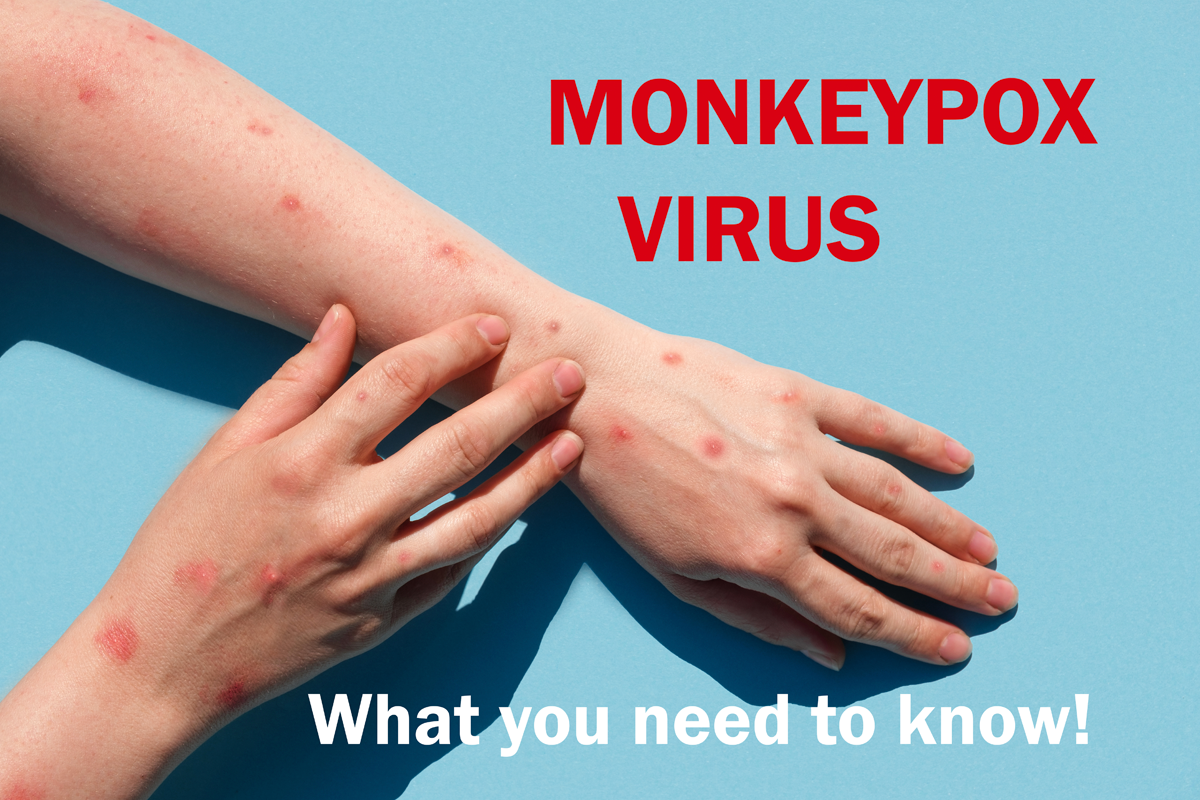 July 25, 2022
July 25, 2022
Monkeypox is a viral disease. African rodents like rats and non-human primates (like monkeys) might harbor the virus and infect people. In the current outbreak, the only good news is that the clinical severity of this disease is low. Nevertheless, people exposed to or contracted monkeypox must take measures to prevent spreading it to others until they’re no longer infectious.
We should not let fear of contracting the infection stop us from leading our normal life. However, if you’re planning on traveling locally or abroad, here’s everything you need to know about monkeypox and its risks to plan your trips and take adequate safety precautions.
What Is Monkeypox?
Monkeypox is an infection caused by the monkeypox virus. It is a zoonotic infection that can spread from animals to humans. It can also spread from one person to another. It shows symptoms similar to smallpox, although it is clinically less severe.
Where Is Monkeypox Found?
According to the WHO, the monkeypox outbreak is a global health emergency. It has impacted almost 16,000 individuals in 72 countries.
It was initially reported in West and Central African countries like Cameroon, Liberia, Nigeria, the Republic of the Congo, etc.
Currently, cases have also been documented in other nations, such as the USA, England, UAE (Dubai), Belgium, France, Germany, Italy, the Netherlands, Spain, Australia, Canada, and Switzerland, to name a few.
As of July 25th, three cases of viral infection from Kerala have been reported in India and one in New Delhi. In the wake of new cases in India, we should take appropriate measures to control the transmission of the infection.
How Do You Get Monkeypox?
What Are The Symptoms Of Monkeypox?
Typically, monkeypox is a self-limiting disease with symptoms that last between two and four weeks.
The incubation period (interval from getting the infection to onset of symptoms) is usually from 1 to 2 weeks but can range from 5 to 21 days. Hence isolation for 21days is recommended for anyone suspected of Monkeypox.
You can spread the infection to others from 1-2 days before rashes appear till all the scabs fall off/subside.
Common symptoms and signs
While some people only experience mild symptoms, others may experience more severe symptoms and need medical attention. Severe cases occur more commonly among children and are related to the extent of virus exposure, patient health status, and nature of complications.
How Is Monkeypox Treated?
Monkeypox is treated symptomatically with supportive care. Doctors may prescribe antipyretics, anti-histamines, antiviral medications, antibiotics, and other medicines to help treat the symptoms and manage potential complications.
How Can I Protect Myself And Others Against Monkeypox?
Although it’s rare to contract monkeypox, it’s best to recognize the risk factors when traveling to endemic nations. If you believe you’ve been exposed to the virus, you should seek immediate medical attention and inform the doctor of your potential exposure. If you are not sure about being exposed to the virus, it’s still a good idea to see a doctor as soon as possible. They can test for monkeypox and if you experience any symptoms related to monkeypox, receiving the proper medical treatment and care is the only way to steer clear of any related medical complications.
To book an appointment, contact us at +91-9540 114 114.
2025 © SSB Heart and Multispecialty Hospital.